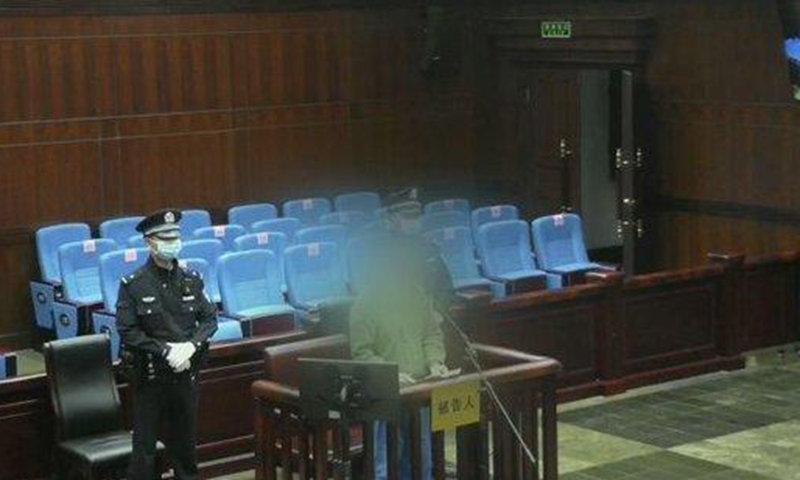
Photo: Courtesy of China's Ministry of State Security
Foreign espionage agencies pay close attention to Chinese scholars and experts who go abroad, seeking opportunities to intimidate them into stealing China's state secrets, China's Ministry of State Security revealed in an article released on its WeChat account on Sunday while disclosing a related espionage case.
As China's comprehensive national strength continues to improve, the number of international cooperation and exchange projects has gradually increased. Many domestic experts and scholars frequently travel abroad for work purposes, conducting inspections and field research to expand research channels and pursue common development. However, foreign espionage agencies resort to despicable tactics such as threats and intimidation to lure them, according to the release.
The ministry unveiled the case of a distinguished Chinese expert, surnamed Li, who has a number of high-end scientific research achievements but fell into the trap of a foreign espionage agency while on a research trip abroad.
After arriving, the foreign espionage agency arranged a meeting with Li under the pretext of inspecting entry and exit documents. Subsequently, they alleged that he might be engaged in activities harmful to the national security toward their country, coercing Li to accompany them to a secluded location for interrogation.
During the interrogation, the espionage agency adopted a tough stance, conducting aggressive searches and confiscating Li's personal belongings. They falsely accused Li's research activities of being aimed at gathering intelligence and harming their country's national security.
Initially, Li contested these accusations and refused to admit to the unfounded charges imposed on him. However, facing prolonged threats of "not guaranteeing his personal safety" and "life imprisonment," Li, to ensure his own safety, was coerced into signing a "voluntary" cooperation agreement with the foreign espionage agency. He was then compelled to provide internal research information to the agency as requested.
The foreign espionage agency also required Li to continue providing intelligence after returning to China through specific communication channels, threatening to report him to relevant authorities if he refused.
Realizing the grave implications of betraying state secrets, Li courageously chose to disclose the ordeal to Chinese authorities upon returning home. He detailed the coercion and espionage activities he endured abroad, expressing deep remorse for unintentionally endangering national security.
Following the investigation by Chinese state security organs, Li was absolved of legal liabilities in accordance with the Counter-Espionage Law of China. State security authorities provided him protection for his subsequent work.
According to the Counter-Espionage Law, any individuals who are coerced or induced to join an espionage or hostile organization abroad, engaging in activities that compromise the national security of the People's Republic of China, but promptly report the situation to a diplomatic mission of the People's Republic of China abroad or, upon their return from abroad, honestly disclose the facts directly or through their employer to a national security authority and show repentance, may be exempted from legal liability.
The Ministry of State Security also reminded the public in the article that during their studies, visits, or travels abroad, individuals must firmly maintain awareness of national security and counter-espionage, keep high vigilance, and avoid falling into the "traps" set by foreign espionage agencies.
The ministry also noted that those who find themselves being framed or entrapped by foreign espionage or law enforcement agencies under the guise of local laws for recruitment or espionage, should stay calm and handle the situation appropriately. And if the questioning involves state secrets, they can refuse to answer.
"Do not accept any money or sign any documents provided by the other party. Insist on contacting our embassy or consulate abroad to apply for consular protection and request to meet with embassy or consulate personnel to avoid falling into the trap set by foreign espionage agencies," according to the ministry.
Those who have been coerced to participate in espionage activities abroad should report to the state security organs timely after returning. Individuals involved must not harbor any illusions, otherwise, it will be difficult to escape the clutches of foreign espionage agencies and eventually fall into the abyss of crime.
Global Times



